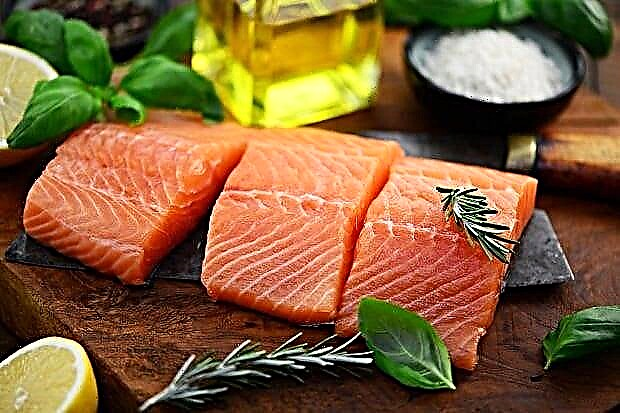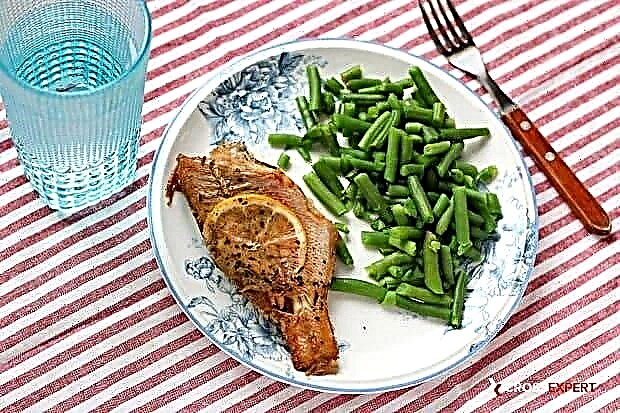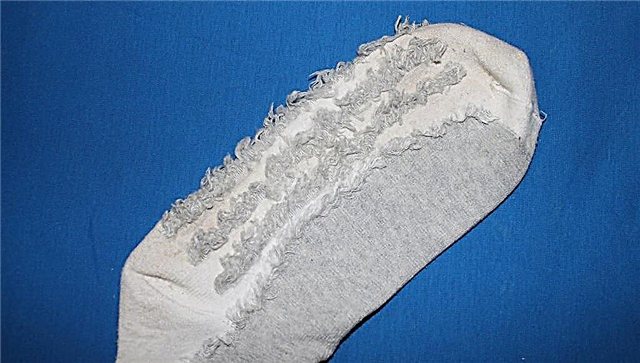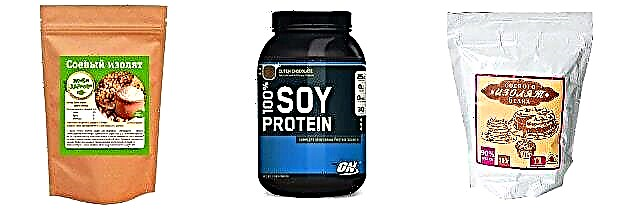Daikon is a white root vegetable popularly called the Japanese radish. Large fruits weigh 2-4 kg and have a rich taste. Juicy, delicate taste is devoid of bitterness. Unlike regular radish, daikon does not contain mustard oils. The product is widely used in oriental cuisine as a condiment.
Due to its beneficial properties, the root crop has won worldwide recognition. It contains many vitamins, enzymes and trace elements necessary for human health. In folk medicine, white radish is also very popular. This ingredient is found in recipes for the treatment of many diseases and for the general strengthening of the immune system.
Calorie content and composition of daikon
The root vegetable has a low calorie content. 100 g of fresh product contains 21 kcal.
The nutritional value:
- proteins - 0.6 g;
- fats - 0.1 g;
- carbohydrates - 4.1 g;
- fiber - 1.6 g;
- dietary fiber - 1.6 g;
- water - 94.62 g.
Vitamin composition
The chemical composition of daikon is rich in vitamins necessary for maintaining the vital functions of the body. It is known that 300 g of radish covers the daily requirement of vitamin C.
The composition of white radish contains the following vitamins:
| Vitamin | amount | Benefits for the body |
| Vitamin B1, or thiamine | 0.02 mg | Normalizes the work of the nervous system, participates in the metabolism of carbohydrates, improves intestinal motility. |
| Vitamin B2, or riboflavin | 0.02 mg | Improves metabolism, protects mucous membranes, participates in the formation of red blood cells, strengthens the nervous system. |
| Vitamin B4, or choline | 7.3 mg | Regulates metabolic processes in the body, strengthens the nervous system, lowers the level of cholesterol and fatty acids in the blood, promotes the formation of methionine. |
| Vitamin B5, or pantothenic acid | 0.138 mg | Takes part in the oxidation of carbohydrates and fatty acids, improves the condition of the skin. |
| Vitamin B6, or pyridoxine | 0.046 mg | Strengthens the nervous and immune systems, fights depression, participates in the synthesis of hemoglobin, promotes the absorption of proteins. |
| Vitamin B9, or folic acid | 28 mcg | Promotes cell regeneration, takes part in the synthesis of proteins, supports the healthy formation of the fetus during pregnancy. |
| Vitamin C, or ascorbic acid | 22 mg | Antioxidant, strengthens the immune system, protects the body from bacteria and viruses, influences the synthesis of hormones, regulates hematopoiesis, participates in collagen synthesis, and regulates metabolism. |
| Vitamin PP, or nicotinic acid | 0.02 mg | Regulates lipid metabolism, the activity of the nervous system, lowers blood cholesterol levels. |
| Vitamin K, or phylloquinone | 0.3 μg | Improves blood clotting, prevents the development of osteoporosis, improves liver and kidney function, and promotes calcium absorption. |
| Betaine | 0.1 mg | Improves the condition of the skin, protects cell membranes, strengthens blood vessels, normalizes the acidity of gastric juice. |
The combination of vitamins in daikon has a complex effect on the body, improving the functioning of all organs and systems and strengthening the immune system. The root crop is indispensable for viral and colds, disorders of the nervous and cardiovascular systems.

© naviya - stock.adobe.com
Macro and microelements
Daikon contains macro- and microelements necessary to maintain a full blood composition and help maintain the health of the lungs, liver and heart.
100 g of the product contains the following macronutrients:
| Macronutrient | amount | Benefits for the body |
| Calcium (Ca) | 27 mg | Forms and strengthens bone and dental tissues, makes muscles elastic, regulates the excitability of the nervous system, participates in blood coagulation. |
| Potassium (K) | 227 mg | Normalizes the work of the cardiovascular system, removes toxins and toxins. |
| Magnesium (Mg) | 16 mg | Regulates the metabolism of proteins and carbohydrates, lowers blood cholesterol levels, relieves spasms. |
| Sodium (Na) | 21 mg | Regulates acid-base and electrolyte balance, normalizes the processes of excitability and muscle contraction, strengthens the walls of blood vessels. |
| Phosphorus (P) | 23 mg | Regulates metabolism, improves brain activity, participates in the synthesis of hormones, forms bone tissue. |
Trace elements in 100 g of daikon:
| Trace element | amount | Benefits for the body |
| Iron (Fe) | 0,4 mg | It is a part of hemoglobin, participates in hematopoiesis, normalizes muscle function, strengthens the nervous system, fights fatigue and weakness of the body. |
| Copper (Cu) | 0.115 mg | Participates in the formation of red blood cells and in the synthesis of collagen, improves skin condition, promotes the transition of iron into hemoglobin. |
| Manganese (Mn) | 0.038 mg | Participates in oxidative processes, regulates metabolism, normalizes blood cholesterol levels, and prevents fat deposition in the liver. |
| Selenium (Se) | 0.7 μg | Strengthens the immune system, slows down the aging process, and prevents the development of cancerous tumors. |
| Zinc (Zn) | 0.15 mg | Regulates blood glucose levels, maintains a sharp sense of smell and taste, strengthens the immune system, protects against the effects of bacteria and viruses. |
The mineral components that make up the radish normalize the body's water balance and promote the elimination of toxins and toxins. Daikon is one of the few vegetables that can help dissolve liver and kidney stones.
The root crop does not absorb toxic substances and heavy metal salts. With long-term storage, it does not lose useful properties.
Amino acid composition
| Amino acid | amount |
| Tryptophan | 0.003 g |
| Threonine | 0.025 g |
| Isoleucine | 0.026 g |
| Leucine | 0.031 g |
| Lysine | 0.03 g |
| Methionine | 0.006 g |
| Cystine | 0.005 g |
| Phenylalanine | 0.02 g |
| Tyrosine | 0.011 g |
| Valine | 0.028 g |
| Arginine | 0.035 g |
| Histidine | 0.011 g |
| Alanin | 0.019 g |
| Aspartic acid | 0.041 g |
| Glutamic acid | 0.113 g |
| Glycine | 0.019 g |
| Proline | 0.015 g |
| Serine | 0.018 g |
Fatty acid:
- saturated (palmitic - 0.026 g, stearic - 0.004 g);
- monounsaturated (omega-9 - 0.016 g);
- polyunsaturated (omega-6 - 0.016 g, omega-3 - 0.029 g).
Daikon is cholesterol and trans fat free.
Useful properties of daikon
Daikon has many health benefits due to its nutrients. The systematic use of root crops has a positive effect on the human body, namely:
- Cleans the body. It is used as a diuretic and laxative of natural origin. Thanks to the salts of potassium and calcium, the water balance is normalized.
- Improves the functioning of the nervous system and brain activity. The product helps to normalize nervous excitability and fights increased aggression. Regular consumption of daikon increases stress resistance and performance, normalizes sleep, improves concentration.
- It is used for the treatment and prevention of diseases of the cardiovascular system, strengthens blood vessels, improves blood composition.
- Reduces blood cholesterol levels, reduces the risk of atherosclerosis.
- It is used in the treatment and prevention of diabetes mellitus. The beneficial substances in daikon help normalize glucose levels and saturate the body with fructose, which is necessary for diabetics.
- Root juice has a positive effect on the functioning of the kidneys, liver and pancreas.
- Strengthens the immune system. Due to its high concentration of vitamin C and a number of other vitamins, daikon helps fight viruses and infections. In winter, the vegetable helps to replenish the supply of nutrients in the body and acts as an effective prophylactic agent for vitamin deficiency.
- It is used to treat skin ailments and improve hair.
Daikon is indispensable in a healthy diet. The product has a pronounced mild taste and is suitable for preparing various dishes. The root vegetable is recommended to be consumed during the period of intensive training and exhausting competitions to maintain optimal physical shape and increase performance.
Benefits for women
Daikon brings invaluable benefits to the female body. It is not just a product used in culinary recipes, but also an indispensable tool for the treatment and prevention of various diseases.
Many women, in the fight against extra pounds, adhere to a healthy diet. Due to the low calorie content of the product, nutritionists recommend including radish in the diet menu. A high fiber content is necessary for cleansing the intestines from toxins and toxins, as well as for the prevention of diseases of the gastrointestinal tract. Fasting days using white root vegetables are effective and useful.
The high content of B vitamins normalizes the functioning of the nervous system. Daikon is especially useful during periods of emotional stress. The root vegetable relieves nervous tension and helps fight stress. Women are advised to consume radish to relieve symptoms of premenstrual syndrome.
Folic acid helps to normalize the menstrual cycle and regenerate all cells in the body. It is very beneficial for women during pregnancy.
Speaking about the benefits of daikon for women, one cannot fail to mention that it is widely used in home cosmetology. The freshly squeezed juice of the plant has whitening properties and helps to get rid of age spots and freckles.

© Brent Hofacker - stock.adobe.com
The root vegetable is used to treat acne and furunculosis. Regular use relieves inflammation of the skin and eliminates other defects. The white root is part of the masks. If you constantly wipe your face with plant juice, the skin becomes elastic, fine wrinkles are smoothed out.
The vitamin composition has a beneficial effect on the health of the hair, it is an effective strengthening and nourishing agent.
The use of the white root helps to keep the skin youthful for a long time and get rid of age-related manifestations. An effective effect is exerted not only by the external use of daikon, but also by its use in food.
Benefits for men
The root vegetable is extremely beneficial for the male body. It strengthens the immune system and helps fight bacteria and viruses. In addition, the rich chemical composition of the root vegetable replenishes the necessary supply of vitamins, macro- and microelements in the body.
Frequent physical activity is typical for men. The vitamins included in the plant help to cope with fatigue and fill the body with vital energy. B vitamins have a beneficial effect on the nervous system, relieve emotional stress, and increase mental activity.
The white root contains protein that is essential for muscle growth. Athletes are encouraged to include daikon in their sports menu.

© pilipphoto - stock.adobe.com
White root enhances male libido and increases potency with regular use.
Radish is useful for the prevention of atherosclerosis and diabetes, and also reduces the risk of developing cancerous tumors.
Each man will personally appreciate the beneficial effects of daikon on the body and will fully strengthen health and immunity.
Contraindications and harm
There are known cases of the development of allergies with individual intolerance to the product.
Doctors do not recommend eating a root vegetable when:
- peptic ulcer of the stomach and intestines;
- gastritis;
- pancreatitis;
- liver and kidney damage;
- gout.
The plant should be used with caution by people over 50 and children under three years old.
Large amounts of radish can cause flatulence.
Outcome
Daikon has a healing effect on the body and is recommended for dietary and sports nutrition. However, product abuse can have negative consequences. It is necessary to consume white root in moderation so as not to harm your health.









